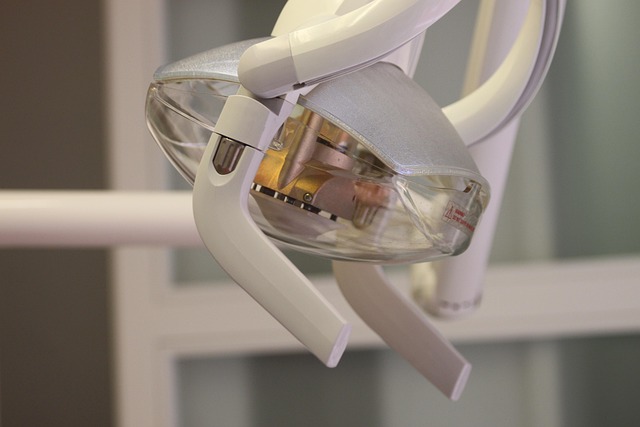Substance Abuse Treatment in Manchester NH: Navigating Recovery with Specialized Counseling
Substance Abuse Clinics in Manchester, NH, address a pressing local issue by offering specialized se…….
Over 15% US adults have used prescription painkillers not prescribed to them.
In the heart of New Hampshire’s largest city, Manchester, a dedicated network of substance abuse clinics plays a pivotal role in addressing the complex challenges of addiction. These clinics form a critical component of the region’s healthcare infrastructure, offering specialized treatment and support to individuals battling substance use disorders. This article aims to delve into the intricate world of these clinics, exploring their structure, impact, and the multifaceted factors shaping their evolution. By examining various aspects, from global influences to technological innovations, we will uncover the significance of Manchester’s substance abuse clinics in both local and international contexts.
Definition: Substance abuse clinics, specifically tailored to meet the needs of individuals in Manchester, New Hampshire, are specialized healthcare facilities designed to provide comprehensive treatment for substance use disorders. These clinics offer a range of evidence-based therapies, counseling services, and support programs aimed at helping patients achieve long-term recovery.
Core Components:
Historical Context: The establishment of substance abuse clinics in Manchester traces back to the growing recognition of addiction as a medical condition in the late 20th century. Over time, these clinics have evolved to incorporate innovative treatment modalities and adapted to the changing landscape of substance use disorders. Today, they stand as hubs of specialized care, serving a diverse range of patients from across the region.
The reach and influence of Manchester’s substance abuse clinics extend far beyond its city limits, reflecting global trends in addiction treatment.
International Reach: With increasing globalization and travel accessibility, many individuals from various countries seek treatment in New Hampshire due to its renowned healthcare facilities and specialized programs. Clinics in Manchester attract patients worldwide, contributing to a diverse patient population and fostering cultural exchange in the treatment environment.
Global Trends:
The economic landscape surrounding substance abuse clinics in Manchester is complex and multifaceted, with significant implications for both the local community and broader healthcare sector.
Market Dynamics: The demand for specialized addiction treatment services has led to a thriving market in New Hampshire. According to recent reports, the state’s substance use disorder treatment industry contributes over $500 million annually to the economy, employing thousands of individuals (NH Department of Health and Human Services, 2022). Manchester’s clinics cater to this demand, attracting both local residents and out-of-state patients.
Investment and Funding: Private investments in substance abuse treatment facilities have been steady, driven by the recognized potential for long-term profitability and social impact. Government funding also plays a crucial role, with state and federal grants supporting various aspects of clinic operations, including research, staff training, and access to medications.
Economic Impact on Manchester: The presence of these clinics has positively influenced Manchester’s local economy. They contribute to increased foot traffic in surrounding businesses, boost hotel occupancy rates for medical tourists, and create employment opportunities within the healthcare sector.
Technology has emerged as a powerful enabler, revolutionizing the way substance abuse clinics in Manchester deliver care.
Telehealth: The adoption of telehealth platforms allows patients to access counseling sessions, group therapy, and support groups remotely via video conferencing. This innovation is particularly valuable for individuals with limited mobility or those who prefer the convenience of home-based treatment. Research indicates that telehealth can be as effective as in-person therapy (Substance Abuse and Mental Health Services Administration, 2021).
Digital Therapeutics: Mobile apps and web-based platforms offer personalized digital therapeutics, providing patients with access to educational resources, self-help tools, and virtual support groups. These tools can enhance traditional treatment by offering ongoing engagement and skill-building between sessions.
Artificial Intelligence (AI): AI algorithms are being utilized for data analytics, enabling clinics to track patient progress, identify at-risk individuals, and personalize treatment plans. AI-driven systems can also assist in medication management, ensuring adherence to prescribed regimens.
Virtual Reality (VR) Therapy: VR technology offers immersive experiences to help patients confront triggers, process traumatic memories, and develop coping strategies in safe, controlled environments. This innovative approach has shown promising results in treating phobias and anxiety related to substance abuse.
The operation of substance abuse clinics in Manchester is governed by a comprehensive web of policies, regulations, and legislative frameworks designed to ensure quality care and patient safety.
Local and State Regulations: New Hampshire’s Department of Health and Human Services (DHHS) oversees the licensing and regulation of substance use disorder treatment facilities across the state. Local health departments also play a role in ensuring compliance with specific community-level regulations. These regulations cover various aspects, including facility standards, staff qualifications, treatment protocols, and patient rights.
National Policies: The U.S. Department of Health and Human Services (HHS) sets national standards and guidelines for substance abuse treatment through programs like the Substance Abuse and Mental Health Services Administration (SAMHSA). These policies influence clinical practices, funding allocation, and research priorities.
Legal Protections: Patients in New Hampshire enjoy legal protections, ensuring confidentiality, informed consent, and access to quality care. The state’s mental health parity laws guarantee equal coverage for substance use disorder treatment compared to other medical conditions.
Despite their significant contributions, Manchester’s substance abuse clinics face several challenges that require ongoing attention and strategic solutions.
Stigma and Discrimination: Stigma surrounding addiction often discourages individuals from seeking help, hindering clinic enrollment and retention. Efforts to reduce stigma through public education and awareness campaigns are essential for fostering a supportive environment.
Access to Care: While Manchester has several clinics, disparities exist in access, particularly for underserved populations. Addressing these disparities requires targeted outreach programs, community partnerships, and the integration of services within primary care settings.
Funding and Resources: The demand for specialized treatment often outstrips available resources, leading to long waiting lists and limited access. Securing sustained funding sources, including public-private partnerships and grants, is crucial to ensuring adequate service delivery.
Staffing and Training: Recruiting and retaining qualified professionals, such as therapists and counselors, can be challenging due to competitive job markets and specialized training requirements. Ongoing investment in staff development and training programs is essential to maintain high-quality care.
Case Study 1: Manchester Community Health Center (MCHC)
MCHC has successfully implemented a comprehensive substance abuse treatment program tailored to the diverse needs of its community. Their approach includes:
Lessons Learned: MCHC’s success highlights the importance of community engagement, integrated care models, and culturally sensitive practices in improving access and outcomes for substance abuse treatment.
Case Study 2: The Haven at Riverwood (A Private Clinic)
The Haven at Riverwood is a private substance abuse clinic known for its luxurious settings and holistic treatment approach. Their unique features include:
Impact: The Haven has achieved high patient satisfaction rates and successful long-term outcomes, attracting individuals from across the country seeking alternative treatment options.
The future of substance abuse clinics in Manchester, NH, is poised for growth and innovation, driven by emerging trends and technological advancements.
Growth Areas:
Emerging Trends:
Strategic Considerations:
Substance abuse clinics in Manchester, New Hampshire, stand as beacons of hope and healing for countless individuals struggling with addiction. Their comprehensive approach to care, guided by research and innovation, has yielded positive outcomes and contributed to improved lives. As we look ahead, these clinics face both challenges and opportunities in an evolving landscape.
By addressing barriers, embracing technological advancements, and fostering collaborative partnerships, Manchester’s substance abuse clinics can continue to set the standard for addiction treatment. The future holds immense potential for enhanced accessibility, personalized care, and positive societal impact. This comprehensive overview highlights the critical role these clinics play and underscores the importance of ongoing support and investment in their development.
Q: How do I know if I or a loved one needs help for substance abuse?
A: If you notice persistent changes in behavior, mood swings, increased secretiveness, or difficulty controlling substance use, it may be a sign of addiction. Reach out to a healthcare professional or local support group for an assessment and guidance.
Q: What types of treatment are available at these clinics?
A: Substance abuse clinics offer a range of treatments, including individual therapy, group counseling, medication-assisted treatment (MAT), peer support groups, and holistic therapies. The specific services provided may vary between clinics.
Q: How do I find the right clinic for my needs?
A: Consider factors like location, treatment modalities offered, insurance coverage, and personal preferences. Research reviews, reach out to facilities directly, and consult with healthcare providers or support groups for recommendations.
Q: Are there any financial assistance options available?
A: Many clinics accept various forms of insurance, and some offer sliding scale fees based on income. Government programs, grants, and community resources may also provide financial aid for those who qualify.
Q: Can family members be involved in the treatment process?
A: Family involvement is often encouraged, as it can contribute to a supportive recovery environment. Some clinics offer family therapy sessions or educational workshops to help families understand addiction and learn coping strategies.

Substance Abuse Clinics in Manchester, NH, address a pressing local issue by offering specialized se…….

Substance abuse is a significant issue in Manchester, NH, impacting various communities. Local Subst…….

Substance abuse in Manchester, NH, is tackled through specialized clinics offering affordable counse…….